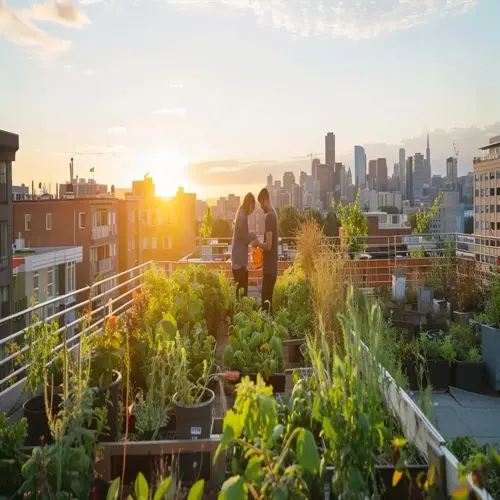How do I eliminate blight pathogens from contaminated soil?

Written by
Olivia Mitchell
Reviewed by
Prof. Charles Hartman, Ph.D.Elimination of soil blight pathogens is done in a multiple-step process that should begin with solarization. Moist soil is covered with clear plastic for 4-6 weeks during the hottest part of the summer. This method captures solar energy, allowing temperatures to be raised to 120°F (49°C) at a depth of 6 inches. Edges are held down with soil, and thermometers are placed below the soil surface to monitor the temperature for the pathogen's lethal conditions.
To prevent reinfection after solarization, we amend the soil with compost to maintain a pH of 6.2 to 6.8, as an acidic pH favors the development of blight. At planting time, we introduce beneficial Trichoderma fungi to help crowd out the pathogens. I apply these biological controls through the drip irrigation systems during establishment. Additionally, we refrain from planting crops in the nightshade family in treated areas for at least 36 months.
Sanitation Protocol
- Sterilize tools with 10% bleach solution
- Pressure-wash cages and stakes annually
- Disinfect shoes between garden sections
Rotation Strategy
- Plant brassicas year 1 after treatment
- Follow with legumes year 2
- Use corn barrier crops between sections
Biological Boosters
- Apply compost tea with beneficial microbes
- Introduce predatory fungi like Gliocladium
- Use chitin-rich amendments for natural fungicides
Practice crop rotation by purposely zoning gardens. Move tomatoes approximately three seasons from infested beds. I use a four-zone system, planting resistant varieties such as "Defiant PhR" when tomatoes are returned to the area. Maintain a thorough medical history to document outbreaks, and regularly assess whether there are specific areas that require additional attention.
For obstinate situations, merge solarization with biofumigation. Grow mustard cover crops for 60 days, then till into moist soil. The glucosinolates released during the decomposition of mustard repress the growth of pathogens. Water well and cover with plastic for 2 weeks to enlarge the effects. This combination of procedures has eliminated blight in my test plots.
Read the full article: Tomato Blight Treatment Guide: Control & Prevention

